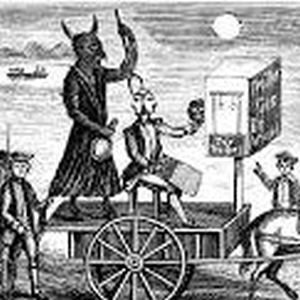Luke's first note to the reader
O CAPTAIN! my Captain! our fearful trip is done;
The ship has weather’d every rack, the prize we sought is won;
-Walt Whitman
O captain! my captain! How are you fallen! With a little help from… me!
No, not just my captain, but my general. Few today know of his glorious victories. His name, along with that of Judas, with that of Satan himself, has long been synonymous with “traitor.” By now you may know of whom I speak, especially if you were schooled in the United States.
Some will be skeptical of my story. But since it’s a joy to boast of my part in General Benedict Arnold’s fall, I write this to all who wish to read it.
It’s hard for people today to imagine the American version of Judas, of possibly Lucifer himself, as a hero. But so he once was. He shown like the morning star throughout the first part of the American Revolution—like the angel Lucifer did in his own beginnings. Yet his change didn't come without warning. It is said that in 1775 a man named Natanis, last of the Norridgewock Indians, greeted Benedict Arnold thus upon meeting him:
The Dark Eagle comes to claim the Wilderness. The Wilderness will yield to the Dark Eagle, but the Rock will defy him. The Dark Eagle will soar aloft to the Sun. Nations will behold him and sound his praises. Yet when he soars highest his fall is most certain. When his wings brush the sky, then the arrow will piece his heart.
Scholars still speculate over the reasons for the change of that heart. A picture contemporary to his time shows an effigy of the general with two faces, one turned backward toward the Devil, who beckons him with a bag of money. But I knew my general; his fall from glory into infamy could not be attributed to simple greed for gold. The motive for change from a blue-coated American general to a red-coated British general who even marched upon his own home state, was much more complex.
General Arnold spent much of his personal wealth in the American cause and exerted his all in battle after battle, almost losing a limb in the effort. Yet he was never reimbursed for his financial investments, much less fairly rewarded for his valor. He had those reasons for betraying the cause he served, and many more… not the least of them an unknown surgeon’s assistant who urged his corruption along. I was unknown, yes, but increasingly powerful. I claim a part in replicating, on the American continent, the fall of the angel I serve.
Why did I want to bring down such a shining star and mold him into an infamous failure? My reasons are also complex—as complex, in their ways, as General Arnold himself. For although I sat among the shadows of the crowd and he in the limelight, our natures and lives found some significant parallels. Once that general met this surgeon’s mate, neither of us would be the same. My life, so different from his on the superficial level, is also a dramatic story. You may come to understand me if you examine some of the chief bricks that were used to build my early years.











Comments (0)
See all